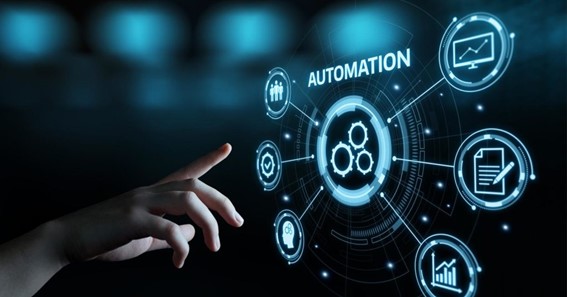According to the Institute for Sales and Marketing Automation’s (IFSMA) definition of marketing automation, the term describes “the IT-supported execution of recurring marketing tasks with the aim of increasing the efficiency of marketing processes and the effectiveness of marketing decisions”. Marketing automation is an effective tool to implement professional lead management in connection with inbound marketing and to ensure better customer experiences along the customer journey.
On the one hand, marketing automation thus aims to shorten the sales cycle in new customer acquisition and to achieve faster market penetration. On the other hand, it effectively contributes to customer retention – with the aim of increasing the customer lifetime value. This results in overlaps with sales automation.
Marketing Automation in B2B – a must-have
In the digital age, B2B decision-makers inform themselves on the internet, compare offers and let their findings flow directly into the buying process. They expect companies to deal intensively with their needs and requirements. Products and solutions must be just as precise as the offer and advice. B2B companies are faced with several challenges at the same time:
A generational change is taking place in management. According to studies, every second B2B decision-maker belongs to Generation Y, which grew up with the internet and mobile technologies. The so-called Millennials are now involved in three-quarters of B2B purchasing decisions. For this new generation, it is no longer just the price-performance ratio that counts, but also aspects such as convenience, speed and the possibilities of handling the purchasing process completely online.
An average of 5.4 people sit in the buying centre when deciding to use marketing automation.
5.4 decision-makers are involved in the buying process
In addition, B2B decision-making processes are often very complex and lengthy. As a rule, around 5.4 decision-makers are involved, for each of whom different criteria are relevant. Consequently, B2B companies are faced more than ever with the challenge of not only entering the selection process of their customers as early as possible, but also accompanying this process over several months, different decision-makers and numerous touchpoints.
Marketing automation – cooperation between marketing and sales
Boundaries between marketing and sales are blurring
Just as the B2B buying process is shifting into the anonymised realm of digital marketing communication, marketing tasks are shifting towards sales support and vice versa. For example, while sales focuses on existing opportunities and customers, marketing ensures the inflow of new leads. In this way, it makes a measurable contribution to business success.
Marketing Automation – Only 50% have gone digital so far
50% are just starting to digitise
Digitisation as well as sales and marketing automation are concrete prerequisites for companies to post healthy revenue growth and be successful in the future. But many do not seem to be aware of this yet. This is the conclusion of a study by IFSMA: Only 16 percent of the companies surveyed perceive digitalisation as a driver of corporate success, while almost 50 percent still see themselves at the beginning of digitalisation. For example, many organisations have taken the step to use a sophisticated CRM system such as Salesforce, but haven’t followed through with using lead routing software to distribute leads amongst the most appropriate salespeople to enhance conversions. In fact, many marketing teams are unaware that lead routing on Salesforce can be executed using third-party software.
Marketing automation advantages for B2B companies
The good news is that marketing automation helps to meet and successfully overcome these challenges. It enables companies to accompany and control digital customer journeys and decision-making processes through targeted, individually tailored measures. By registering customer behaviour, marketing automation makes it possible to analyse it. The interpretation of the automatically collected data enables B2B companies to personalise information and create content relevant to the target group. This in turn can be automated and targeted so that there is hardly any wastage. This makes marketing automation in B2B an important digitalisation driver.
To Know Some Great Stuff Do Visit GetDailyTech
To Know Some Great Stuff Do Visit GrowMeUp
To Know Some Great Stuff Do Visit GuessingTrick







